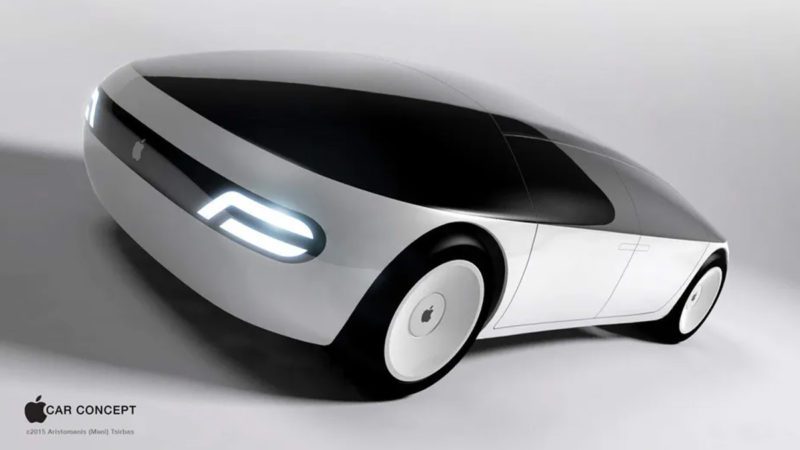Apple CEO Tim Cook has hinted at a possible autonomous Apple electric vehicle amid a report from The Korea Times that LG Electronics’ joint venture with Canada-based automotive supplier Magna International is close to signing contracts with Apple to build its early EV models.
Rumours of an Apple EV have been circulating for a decade or more, just as they had for an Apple TV, only for it to result not so much in an actual capital-T Television, but a small set top lower-case-t television box.
Along these lines, Cook told Kara Swisher for the New York Times “Sway” podcast released earlier this month, that the Apple EV may not be an actual Apple electric vehicle, but the company’s possible involvement in vehicle autonomy.
“The autonomy itself is a core technology, in my view,” said Tim Cook. “If you sort of step back, the car, in a lot of ways, is a robot. An autonomous car is a robot. And so there’s lots of things you can do with autonomy. And we’ll see what Apple does.
“We investigate so many things internally,” Cook added. “Many of them never see the light of day. I’m not saying that one will not.”
Swisher asked if Apple was making a car itself, or technology for inside a car. Cook declined to comment, adding only that: “We love to integrate hardware, software, and services, and find the intersection points of those because we think that’s where the magic occurs. And so that’s what we love to do. And we love to own the primary technology that’s around that.”
A week later, however, an anonymous source “familiar with the issue” speaking to The Korea Times revealed that a joint venture made up of LG Electronics and Magna International – tentatively named “LG Magna e-Powertrain” – is apparently “very near” to signing contracts with Apple to build early EV models.
“LG Magna e-Powertrain is very near to signing contracts with Apple under which they could handle the initial volume production of Apple EVs,” said the source. “Contract details are still being discussed.”
Production volume of a potential resulting Apple EV would be well within the joint venture’s capabilities, as the source explained that Apple is mostly intending to use its first-generation EVs as an opportunity to evaluate their marketability.
Moreover, Apple already has a sizeable working relationship with LG Group’s affiliates.
“Because LG Group affiliates including LG Display, LG Chem, LG Energy Solution and LG Innotek are already included in Apple’s parts supply chain, Apple doesn’t have to worry about any supply chain issues,” the anonymous source explained.
“These LG affiliates are qualified to guarantee production yields and faster delivery of parts needed for Apple EVs.”
In December, a Reuters story quoting several unidentified sources suggested that Apple will develop its own self-driving technology, with a view to delivering an EV with “breakthrough” battery technology to the market by 2024.
A month later reports began circulating that South Korean automotive manufacturer Hyundai Motor would sign a partnership deal with Apple to launch an autonomous EV some time this decade, with production reportedly set to start in 2024.
However, talks between the two companies also reportedly ended in February without a deal beign signed, and Hyundai confirmed that they were not in talks with Apple.
All of this is par for the course, especially when it comes to deducing Apple’s plans for its company and potential market expansion.
If you are looking to dive further into the rabbit hole, though, CNET Roadshow’s Brian Cooley dove in on the subject earlier this year, and it’s worth watching. See: https://www.cnet.com/videos/are-cars-too-much-like-tvs-for-apple/
Joshua S. Hill is a Melbourne-based journalist who has been writing about climate change, clean technology, and electric vehicles for over 15 years. He has been reporting on electric vehicles and clean technologies for Renew Economy and The Driven since 2012. His preferred mode of transport is his feet.


